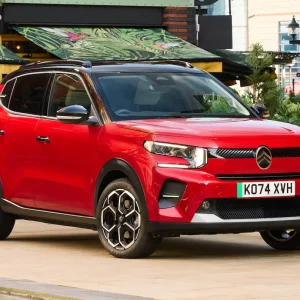As 2024 gets underway, our conversations with customers suggest this might be the year of genuinely thinking differently about mobility.
There is a degree of confidence around vehicle availability that is changing behaviours in the marketplace.
A growing base of evidence around the positive impacts of more innovative mobility strategies is encouraging organisations to try new approaches.
Vehicle supply issues continue to improve, which is building confidence in the market. This may encourage customers to explore different options that extract greater value and strategic benefits when it comes to their employee mobility strategy.
This year, we’d also expect to see more organisations adapting to changing working patterns as hybrid working continues. The move towards mobility as a holistic service, designed to meet a wide variety of employee needs, is also likely to gather pace. Companies that have engaged with their employees to develop a granular knowledge of their mobility requirements will be well-positioned to reap the rewards of more innovative travel strategies.
Innovative approaches to business travel need not be risky if they are based on data and analysis. Technology and data are delivering transformational insight into employee travel habits, giving customers unparalleled information and oversight. Mobility partners that offer a consultative approach to business travel can help customers explore their options better by using data insights to drive effective change.
Just imagine, not only knowing how many cars are available to employees but how often they are used; where they are, where they go, when, how far, how often and where they end up. You could shape your fleet to suit the precise needs of your employees, while reducing mileage, emissions and costs.
This is one reason why increasing numbers of public and private sector organisations are turning to dedicated on-site car clubs to transform their mobility offering.
A combination of a thorough understanding of employee needs and the power of technology and data to shape service delivery builds the confidence to try something new.
There are good reasons to be confident about new approaches to mobility. Grey fleet is a perennial problem in terms of costs, efficiency and emissions, but there are well-evidenced solutions. Car clubs, rental, multi-modal travel, ride-sharing and active travel can all play a role and they all drive down costs and reduce emissions. Combine this with an increasing number of EVs and decarbonising business travel becomes increasingly achievable.
Necessity is the mother of invention, and most would agree that reducing grey fleet usage is necessary, both to help support net zero goals and to improve employee mobility choices.
Thankfully the solutions are already available, and it’s just a case of having the confidence to try them. With business travel set to increase even more in 2024, it is an exciting time for companies to evolve their strategies to be more effective and satisfactory.
Paul McCorkell is director of business rental UK & Ireland at Enterprise





